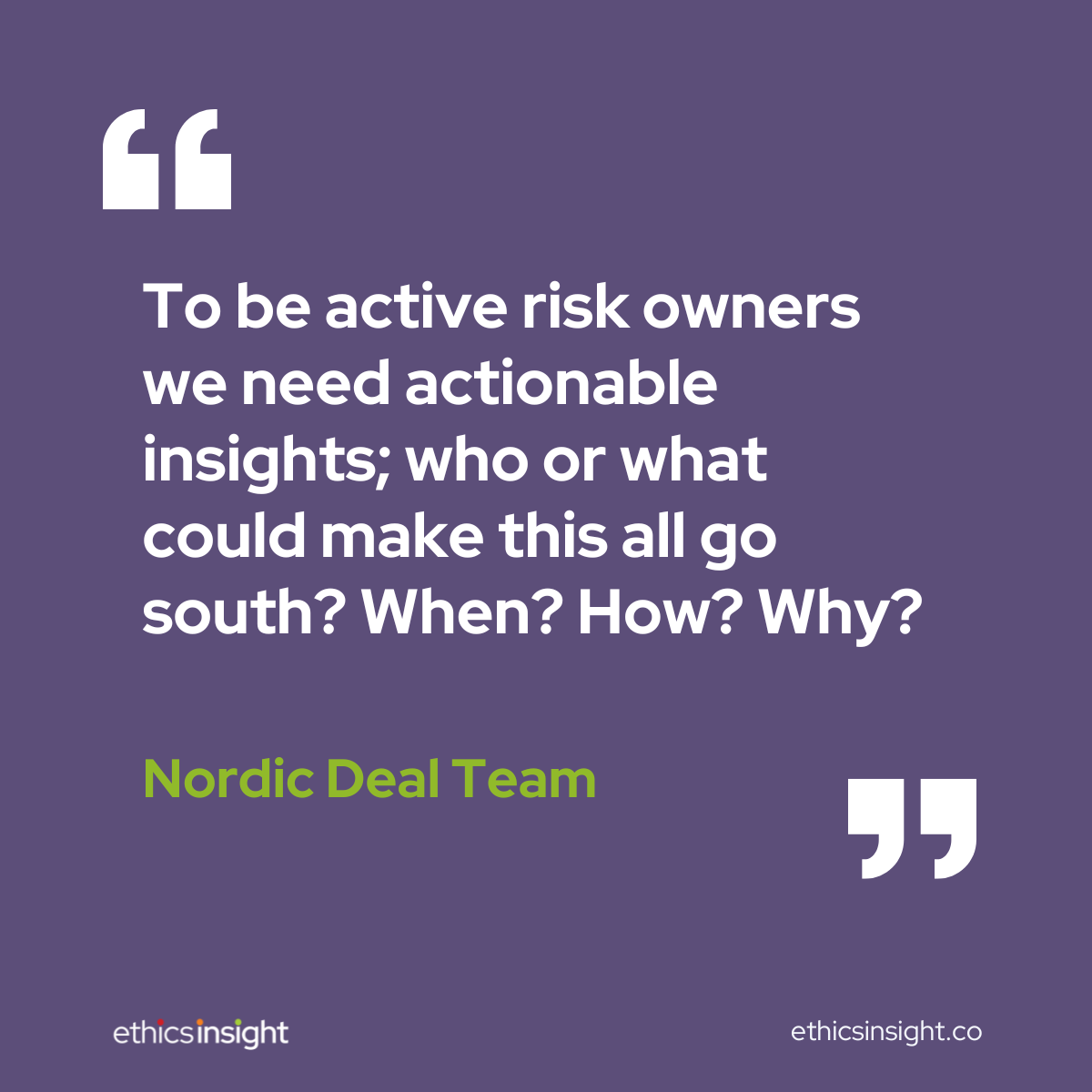Short conversations avoid costly harm
Since leaving Control Risks (in Feb 2019), where I worked extensively on political risks, I’ve not spoken much on the topic. That was a mistake.
In an annual review with a lovely impact investor client, she mentioned that the deal teams liked getting the ‘off the record’ debrief after we finished a risk assessment (sometimes called due diligence). The scope of these projects goes something like this:
👉 Speak and get disclosure from the potential investee about how they manage risk.
👉 Review the disclosure and conduct interviews better to understand the efficacy/implementation.
👉 Simultaneously, conduct research leveraging the experience and our network to assess the operating context and potential risks.
👉 Conduct interviews follow-up as needed.
👉 Compile a report summarising the priority risk areas, gaps (controls, culture, leadership, etc.), and develop an action plan (usually as part of the legal agreement if the deal proceeds).
👉 Have a call with the deal team to summarise our take and any additional information.
That last step typically takes 30 minutes to an hour, but various deal teams singled it out as the most valuable part of the process. As my client read out the feedback, it became clear why. The designated scope might be to focus on integrity risks (corruption, fraud, human rights, etc.). But we pick up considerable data about other political, security, social, environmental, and behavioural risks along the way.
Two areas stood out.

Behavioural insights
I spent years studying behaviour and deception detection and a decade since practising. I became one of only a handful of people (globally) qualified (accredited) to train others in techniques usually reserved for the intelligence services. Stupidly, I assumed its use in my work was primarily for investigations. Luckily, the deal teams were smarter than me and asked questions about the investee management team’s honesty, how forthcoming they were, their openness to ideas, and the intra-team dynamics; these insights helped them more than anything else.
Political risk hedging
Political and security risks were more surprising as feedback. I’d (foolishly) formed a bias associating that advice with large organisations. Many of my clients’ investees are scale-ups, disruptors, and boundary-pushers. They often find themselves challenging the status quo, a stance that is not always well-received. From telemedicine in East Africa to renewables in Southwest Africa to agribusiness in Southeast Africa, powerful vested interests stand to lose out. In other instances, regulation in these dynamic sectors is non-existent, emerging (hastily), or confused. In each situation, the potential for inconsistent interpretation or enforcement could end some of my client’s investments. Why didn’t I volunteer these insights?
I was afraid.
In all the years I’d spent working in political risk, I’d seen a desire for binary predictions—positive or negative. We’d be pushed on how the latest coup or election would impact business. But this approach overlooks the nuanced nature of political risk. It’s not about predicting outcomes but understanding the complex interplay of factors that shape the business environment. Let me explain why with an example.
Cambodia case study
About a decade ago, we mapped money laundering and organised criminal activity across Southeast Asia. Cambodia came out top. It’s dollarised, increasingly repressive, a kleptocracy, buddies with the world’s unsavories (including North Korea), and anyone can enter and own a business. Why was the US doing nothing despite numerous “do better” notes attached to chunky aid packages?
Because Cambodia was China’s pawn in ASEAN (the Southeast Asian Block), it vetoed moves from all the other members to unite against China’s increasing aggression in the South China Sea. The US hoped, wrongly, that Cambodia might be wooed. So the cheques kept coming without real conditions. As the US became more introspective and dropped the ball a bit on Southeast Asia, China slowly kept up its pressure (debt, corruption, military, logistics). This week, it’s been reported that China is starting what amounts to a military base in Cambodia, just as the country disappears one of the few remaining critical journalists.
A decade ago, I was asked if the passing of the baton from the Khmer Rouge kleptocrats who ran Cambodia for decades to their Western-educated kids would lead to improved governance. It was the wrong question. A better question would be the one a deal team might ask: how would you rank Cambodia as an investment choice versus other Southeast Asian markets on a ten year timeframe?
That question came last year. One of my other impact investment clients’ most significant investments in 2023 was a fund focused on the Greater Mekong region (including Cambodia).
Factoring ‘miscellaneous’ risks into your decision-making
Political risk analysis is not a privilege reserved for the world’s largest organisations. Nor is it a binary thing. Most forecasts are wrong. But, if you’re speaking to the right people, you can understand the general direction of travel, the triggers along the way that signal an improvement or deterioration, and how to insulate your activities.
In the Cambodia fund’s case, we agreed to avoid investments in government-connected sectors. Impact investment can target those areas that are too small or ‘hard’ for greedy kleptocrats seeking large payoffs. Consider what you’re doing, where (within the country), and with whom.
Political risk and behavioural analysis should be part of proper integrity risk assessment or investment due diligence. I would say that, but am I wrong?
